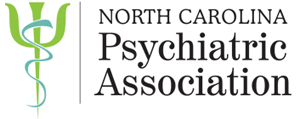Key Physicians: Independent Physician Groups Come Together to Form ACO
- Aug
- 23
- Posted by TAC News
- Posted in Featured Organizations, TAC Consortium News
- 0
The business model at Key Physicians, an organization of more than 220 independent physicians in Wake, Durham, Orange and Johnston Counties, has been evolving over the last four years from a traditional Independent Physician Association (IPA) to an accountable care organization (ACO) model. The constant throughout the process has been improving the quality of care for patients while maintaining physician independence. The moral of the Key Physicians story is that a group does not have to be “owned” by a large entity to be part of an accountable care model – you just need smart affiliations that focus on value and what is best for the patient.
“I worry that what’s best for patients isn’t usually in the equation in health care so far in our society,” said John Rubino, MD, President of Key Physicians. “As independent physicians – and we’re trying hard to maintain that [independence] — we can choose the best place for a particular patient for their particular problem. I hope that independent physicians remain as strong advocates for their patients in choosing the right thing for them.”
The journey for Rubino and his group began about four years ago when Key Physicians’ doctors decided to pursue Patient Centered Medical Home (PCMH) designation. A few physicians left, but everyone else made the necessary changes to become identified as a PCMH. This accomplishment showed at least one insurance company, Cigna, that Key Physicians could get things done as an IPA. So about a year ago Cigna and Key Physicians entered into an accountable care arrangement. Basically, they agree if certain goals for preventive care are met, and money is saved, Key is able to keep some of that savings. A similar agreement was struck with Blue Cross and Blue Shield of North Carolina this year, and recently WakeMed and Key announced their intent to form a Medicare ACO, focused on reducing health care costs and improving quality in both the traditional Medicare program and in private insurance programs.
“By forming an ACO of Key Physicians’ extensive primary care network and WakeMed’s inpatient and outpatient services, clinical resources and physicians, we will help facilitate patient access to a coordinated health care team focused on delivering efficient, quality care at a reasonable cost,” Rubino said in the statement announcing the partnership. “While patients will retain access to all of the region’s hospitals, they will benefit from an overall strategy to provide a more seamless experience regardless of where the care is delivered.”
These arrangements “are bringing into the health care system something that it grossly lacks – competitiveness based on quality and price,” Rubino said. “Some of the insurance companies now are telling you the prices of procedures at different places, but [patients] don’t have a sense of the quality, so they go, ‘if it costs more it must be better.’ But that is not necessarily true.”
Doctors have the expertise to evaluate the quality of the outcomes, which may not correspond to the price. Rubino said Key Physicians have identified as much as a 30 percent cost difference for the same quality procedure, leading to significant savings and equal patient outcomes.
“There are a lot of opportunities out there to do things that make a lot of sense,” he said. “We are proactively searching for those opportunities. It’s better for the health care system and our community.”
Independence is important to competition because Key Physicians – and patients — are not restricted to particular specialists or hospitals for their care. These providers need to earn Key’s “business.”
“All too much right now in our health care system locally and across the country, everybody is choosing [exclusive affiliations]. The problem is no one asks the patients about that. I can tell you, no one system is the best of everything,” Rubino said. “Whereas, more and more, the choice is made based on where you are to start with. So, if your primary care doctor [has a certain affiliation], for example, it’s very likely you’re going to refer to a doctor [with the same affiliation] whether or not that’s the best choice for that particular patient.”
Rubino is pleased with the progress Key Physicians has made toward the accountable care model and the ability to provide high quality care at lower costs.
Moving toward the accountable care has “provided a mechanism for a number of very independently minded doctors to get together, do some good things for their patients and their community, and get a greater voice in local health care,” he said.
Leave a Reply
Recent Posts
- North Carolina Home to Seven New Medicare ACOs in 2015
- Wilmington Health: Health Care Reform “In the Trenches”
- NC ACOs Rank in Top 15 Percent Nationally for Quality of Care
- Triad Health Network Founded on Unique Relationship With Cone Health
- Latest ACO Headlines…
Recent Comments
Archives
- January 2015
- November 2014
- October 2014
- March 2014
- January 2014
- November 2013
- October 2013
- September 2013
- August 2013
- July 2013
- June 2013
































